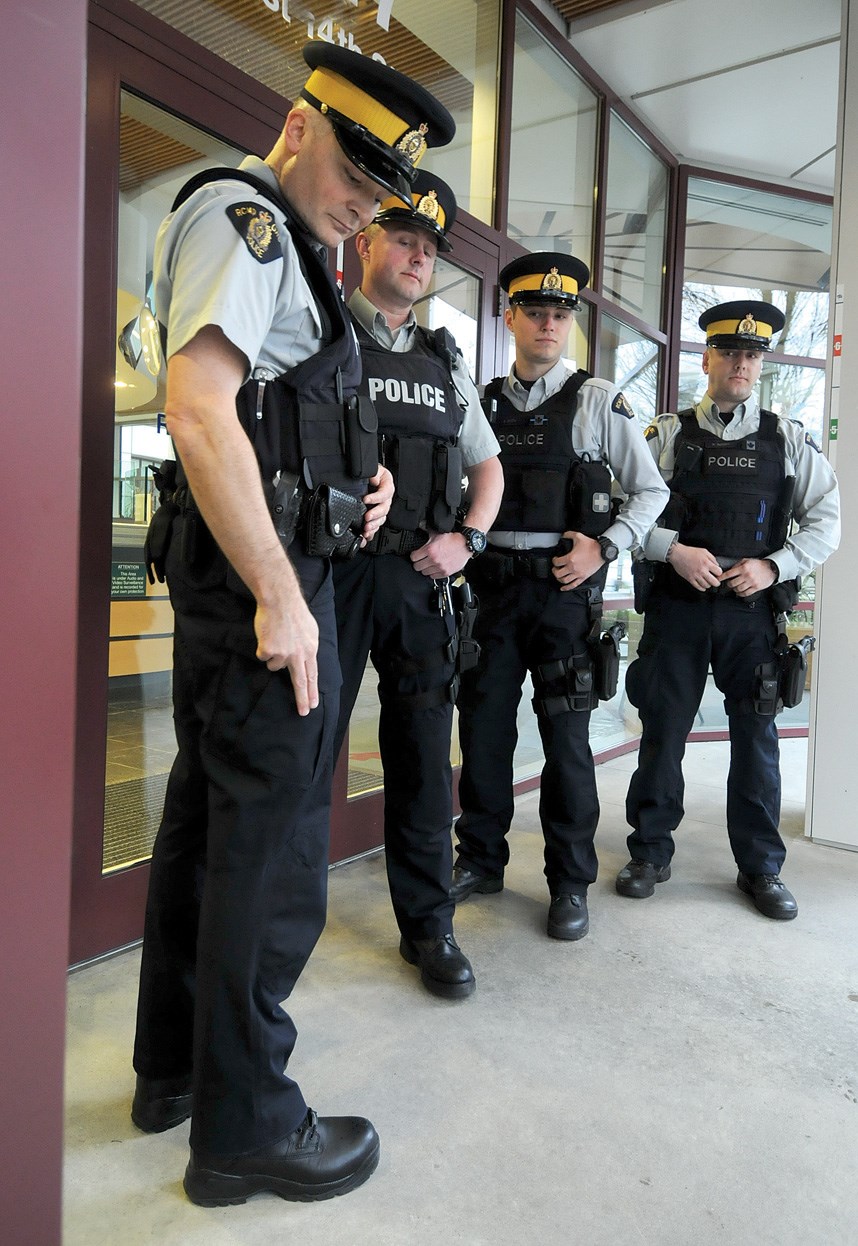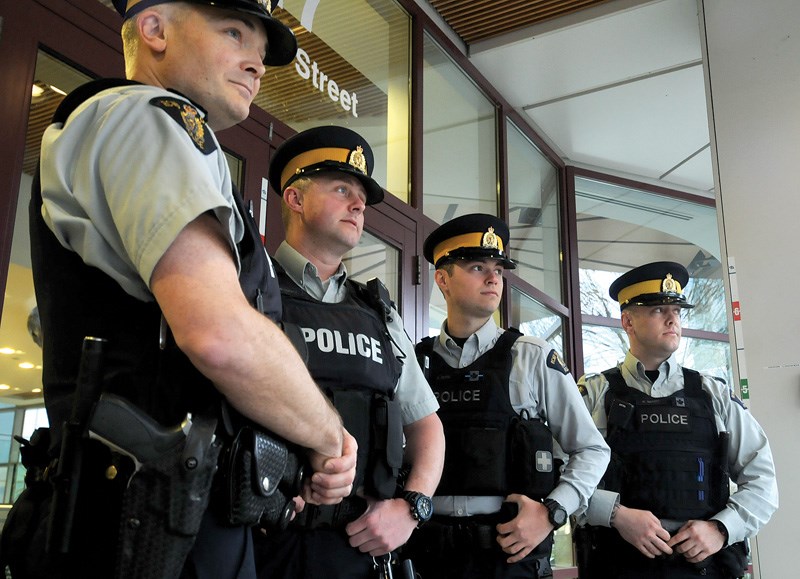RCMP officer are getting their first raise in years, although some local members are staging a protest in a labour dispute with the federal government.
A contingent of officers reported for duty at the North Vancouver detachment Thursday morning after removing the distinctive yellow stripes from their pants. The significance of the stripe stems from the Royal Irish Constabulary, the police force after which the RCMP was modelled.

“They gave us the yellow stripe to wear. It’s one of our symbols, like the red serge. The yellow stripe is an RCMP thing. No other police forces in Canada wear a yellow stripe,” said Cpl. Bryan Mulrooney.
Removing it sends a message about their discontent without taking more disruptive job action, Mulrooney said.
“We can’t strike, nor do we want to,” he said.
Mulrooney said his fellow officers have been working without a contract or pay raise since 2015 and, since 2005, have fallen to 72nd out of 80 police agencies in the country in pay and benefits. Previous requests for raises at the Treasury Board of Canada have been rebuffed
“It’s sort of like when a child goes to their parents and asks for a new bike and the parents say no,” he said. “We’ve been fairly helpless in the last several years because we don’t have any union or bargaining association that has any teeth.”
With wages and benefits falling behind other higher-paid forces, officer morale was dropping and recruitment was suffering, Mulrooney said.
“You’re getting disgruntled members, which is definitely going to affect the service level,” he said. “We are losing members right now substantially to other police forces and for new members that are applying, we’re not getting the best and brightest.”
Plans for the quasi-job action were put in place as federal Public Safety Minister Ralph Goodale’s office was preparing to announce the force’s members would receive raises of 1.25 per cent effective Jan. 1, 2015 and 1.25 per cent effective Jan. 1, 2016 as well as a 2.3-per-cent market adjustment effective April 1, 2016.
According to Goodale’s office, that puts the RCMP’s total compensation, including pensions and benefits, in line with “eight police forces covering 90 per cent of the Canadian population.”
North Vancouver MP Jonathan Wilkinson said he had sat down with local officers and passed along their concerns to Goodale.
“Essentially, a significant portion of the demands that they made with respect to the increase in pay were met and they were met because it was time. The RCMP needed to have wages adjusted. They were frozen by the previous government,” Wilkinson said. “I don’t think that’s a reasonable position to put people in. … RCMP officers do an incredibly important job in our community and we ask them to do all kinds of things that often put their lives and safety in jeopardy.”
But, following news of the raise on Wednesday night, Mulrooney said “no one was thrilled” among his fellow officers.
“We’re getting caught up to where we were three years ago and we’re still not caught up,” he said. “Now we’re again without a pay contract from this point forward.”
The raise and protest come in the midst of a union drive within the RCMP.
A Supreme Court ruling in 2015 cleared the way for RCMP members to organize and begin collective bargaining.
The Mounted Police Professional Association and the National Police Federation are competing to sign up 40 per cent of the members.
Mulrooney said Thursday’s protest is also meant to inspire members to sign up with one of those groups.
“We’re trying to take it into our own hands as much as we can to get members to sign up to these associations with the goal of them forming a union,” he said.
Mulrooney said all but a few of the officers he knows are in favour of unionizing.
District of North Vancouver chief administrative officer David Stuart said the district was anticipating an increase in RCMP staffing costs and have accounted for it in the budget.



